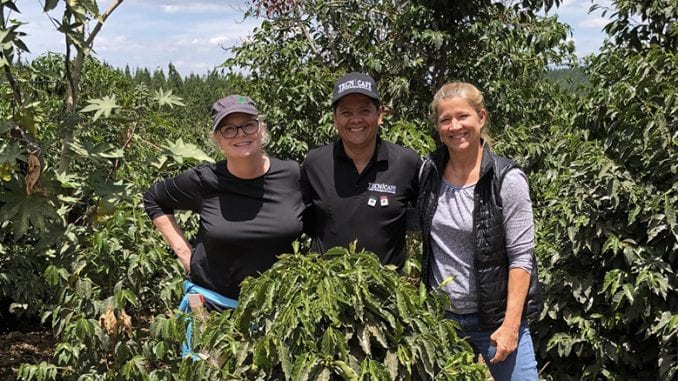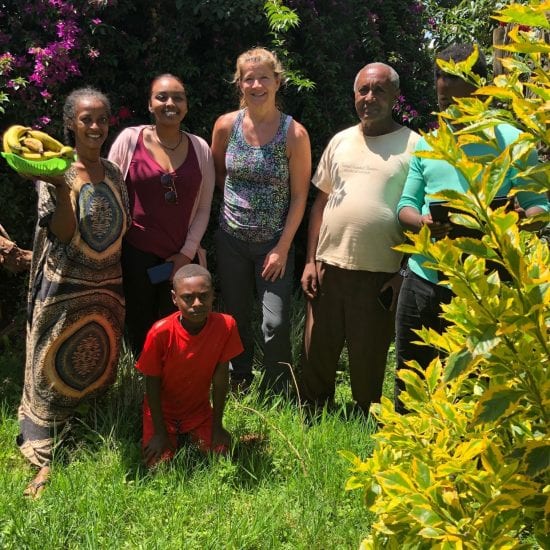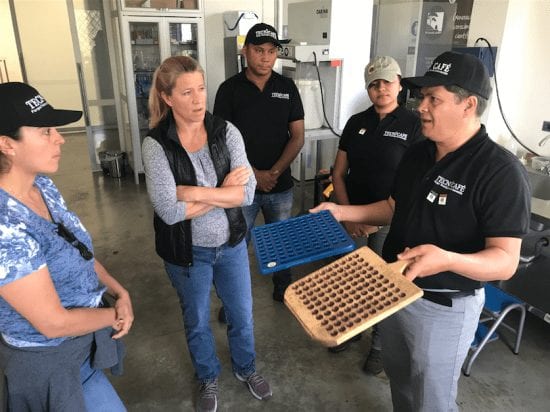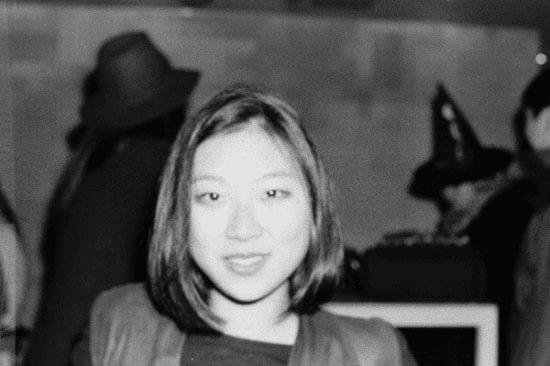
We talk to the Coffee Quality Institute’s CEO about her journey from zoology to CQI, and her goals for the company ahead.
BY JIYOON HAN
SPECIAL TO BARISTA MAGAZINE ONLINE
Photos courtesy of Tina Yerkes
Note: This interview has been edited for brevity and clarity.
Tina Yerkes is a veteran professional in the nonprofit sector with a passion for furthering science and education. In March 2019, Tina became the CEO of the Coffee Quality Institute (CQI); it was a newly created position for the nonprofit, whose goal is to improve the quality of coffee and the lives of coffee producers. CQI is also the architect behind the universally accepted Q certification system, which allows leveled communication for stakeholders along the coffee value chain to evaluate coffee quality.
Prior to joining CQI, Tina was a Zoology major, the general manager of Global Water Systems at NSF International, and COO of The Stewardship Network, an organization committed to natural area conservation. While coffee is a new industry for Tina professionally, coffee “has been part of [her] life forever.” We talked to Tina to find out how she will draw on her nonprofit management and leadership to further CQI’s mission, and much more.

Jiyoon Han: How did you go from a Ph.D. in Zoology to specialty coffee?
Tina Yerkes: I often get this question from people who are in school [and] who are trying to find direction. My advice is: Go to school and enjoy it. Don’t stick to a single path. At the end of the day, it is not too relevant. You can make your own path as long as you do well in school.
If you look over my career, there are three common threads. I’ve been in nonprofit my entire career, I’ve always been in science-based organizations, and I’ve always been involved in education. Prior to my Ph.D., I taught middle-school science in Baltimore. The thread of my career all has to do with nonprofit and science. I created a regional research program in a nonprofit environment. This quickly evolved to overseeing research and conservation activity. This is the nonprofit mission.
Moving through various conservation roles, I moved further away from the meat of my original research. Zoology started to become not so relevant. What is important is what it is you’re doing with your research. My job previous to CQI was with NSF International, also a standards-based science-based organization. From there, I was head-hunted for a position with CQI. I always say yes until you say no.
I found CQI to be a fascinating nonprofit that needed leadership to grow. CQI was looking specifically for someone not in the coffee industry. A lot of times when an organization is stuck, a good strategy is to bring in someone who is not embroiled in the detail of coffee processing, for example. It’s really about nonprofit management, mission-driven work for me.

What have been some of your greatest challenges and excitements as a newcomer to the coffee industry?
Coffee is highly technical, science-based, and emotional. Coffee is very emotional. People are very dedicated no matter where you are in the coffee value chain. It is weird to look at someone who knows nothing about coffee. But the community is very welcoming. People are very ready to share their stories. It was a matter of doing a lot of listening—listening to their dreams, hopes, wishes, and learning the language of coffee. Being able to talk about coffee the way coffee people do was the first step for me. Jumping into a new industry should never be scary for people. It’s just like learning the industry. You’re not trying to develop something that is impossible to learn. I’m not a technical expert and this will never be a goal. I have great staff [who] are technical experts. The coffee community is very welcoming and appreciative of new people and new ideas. Just like any industry, we need to stay on the forefront of innovation and relevancy. We need new ideas and ways of doing.
What are some things you’re looking to accomplish personally for yourself within this role, and accomplish as goals for the organization?
Personally, any time I switch a job or career it is because of the mission. For me to be able to create impact around that mission is very important. The other is to learn coffee more. Every day is an opportunity to learn something new.
For CQI, one of the biggest reasons they sought a CEO was to grow their ability to deliver more programs, medium- to long-term programs. The virus is only going to be a bump in the road. What this means is that we’ll get back on our growth trajectory. We want to do more work on the ground at origin … [and] deliver more education throughout the supply chain to producers and consumers.

ABOUT THE AUTHOR
A native New Yorker, Jiyoon Han is a Q Arabica Grader, Q Processing Generalist, and was a judge for the U.S. Coffee Championships 2019 Brewers Cup Prelims. As Chief Daughter at Bean & Bean Coffee in NYC, Jiyoon sources, roasts, and cups coffee. She’s a student at the Harvard Business School, where she is co-president of the Coffee & Tea Club.

